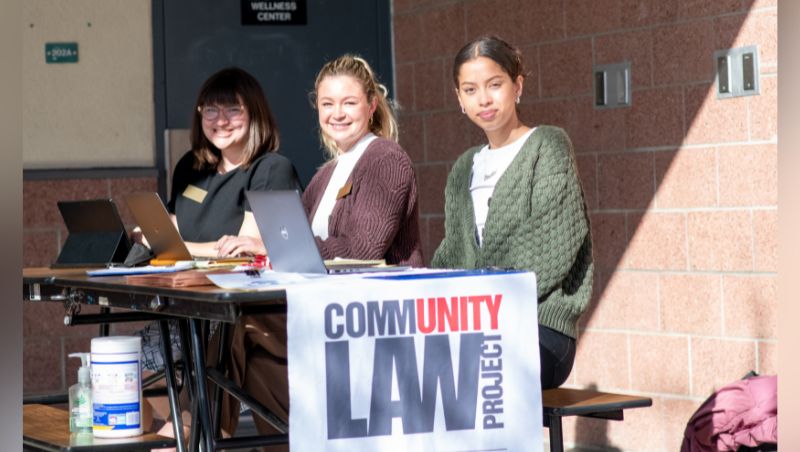
At the Heart of Justice: How the Community Law Project Changes Lives-- One Clinic at a Time

This is a feature also shared in the CWSL Spring 2025 Alumni Magazine. You can find a pdf of these pages here.
At California Western, real-world training doesn’t wait until graduation. And for students who pass through the Community Law Project (CLP), the work is personal.
Founded to deliver free legal services to underserved communities across San Diego, CLP allows students to meet with real clients under the supervision of experienced attorneys. What begins as an academic opportunity often becomes something more: a shift in perspective, a call to service, and, for many, an early glimpse of the kind of lawyer they want to become.
CWSL alumnus Sami Haddad didn’t work with CLP as a student, but years after graduating, he found his way back. “Somebody I was dating at the time said, ‘You should do it. They need you,’” he recalled. That advice pushed him to reconnect with the school and community in a new way. “It was good to feel like I was helping,” he said.
What struck him most was the disparity in legal access, and the chance to be part of the solution. “You have an opportunity, and I would argue, a duty as a lawyer to effectuate and provide other people with access to counsel, even though they may not have it,” he said.
At the center of it all is Professor Dana Sisitsky, who has directed CLP since 2013. She brings a calm, thoughtful leadership style that encourages students to not only do the work, but to consider what justice really looks like outside a courtroom. “Students are learning how to listen, how to advocate, and how to serve,” she said. “And the clients? They’re being seen and heard, many for the first time."
In 2024 alone, the CLP:
- Held 141 free clinics throughout San Diego County
- Served 768 people during clinics and 358 more through community education
- Engaged 1,845 student volunteer hours
- Reached communities where over 80% of clients were people of color, 65% had family incomes below the federal poverty line, and 50% spoke a primary language other than English
Those numbers are powerful, but the people behind them are the real story.
“Working with real clients helped me understand what people are actually going through. It made me feel like, okay, this is why I’m doing this,” said Mariza Lockhart (J.D. ’15), now founder of her own practice in San Diego. The experience also gave her the confidence to step into a room, engage with real legal issues, and trust that she belonged there.
Robert Prine (J.D. ’16) agrees. He still remembers the intake forms, the legal puzzles, and the grateful clients he helped through the program. But what stuck with him most wasn’t just the cases, it was the feeling of doing the right thing. “It was a great experience. It made me realize what kind of lawyer I wanted to be, and it gave me a foundation to start from.”
That’s exactly what Professor Sisitsky hopes students take away.
With sites throughout San Diego, CLP offers a wide lens on the legal challenges everyday people face. Housing, immigration, family law, or employment issues, it’s all on the table, and no two clinics are ever the same. Students are expected to listen carefully, think critically, and offer guidance under pressure, often for the first time in their legal careers.
“We’re teaching practical skills,” Professor Sisitsky said, “but we’re also teaching students how to lead with compassion.”
Alumni who’ve participated through the program consistently mention how CLP helped them grow not just as future lawyers, but as future leaders. The impact of that transformation extends long after graduation.
Looking ahead, Professor Sisitsky hopes to expand CLP’s reach with continued alumni support through donations, mentorship, or volunteer attorney participation. With every new clinic comes the chance to serve another person in need and to give another student the kind of experience that stays with them for life.
Because at the Community Law Project, it’s never just about filling out a form or learning about an applicable statute. It’s about showing up, for your client, your community, and yourself.
